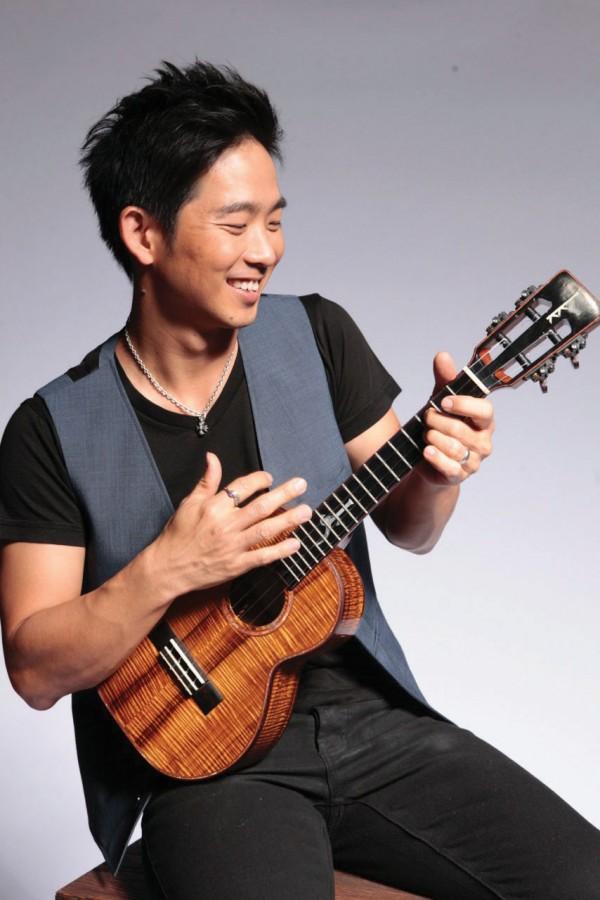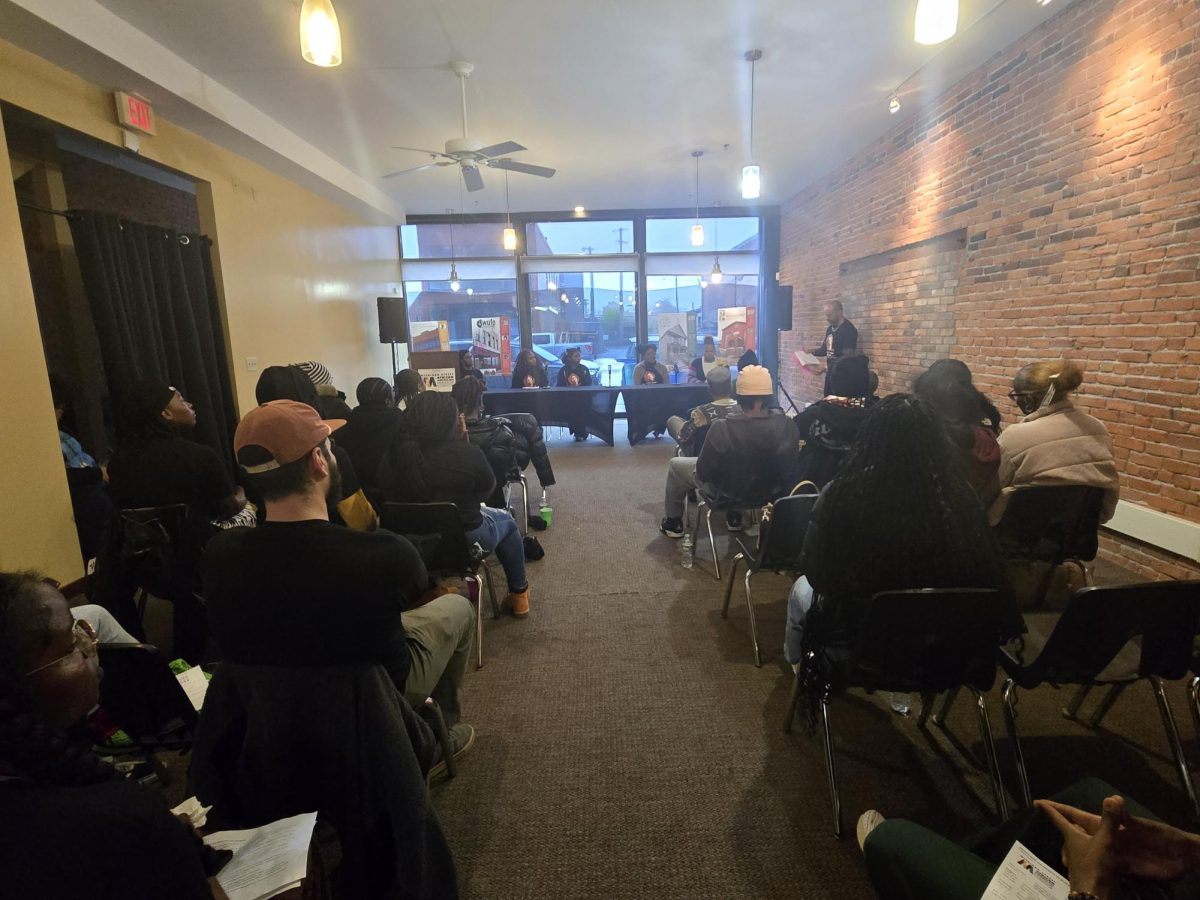Q&A with ukulele musician Jake Shimabukuro
A YouTube video of Jake Shimabukuro covering a Beatles song has over 14 million views.
October 27, 2015
Jake Shimabukuro, a ukulele player that has covered famous and contemporary songs, is showing his talent with the Buffalo Philharmonic Orchestra Nov. 7 and 8 at Kleinhan’s Music Hall.
The Record’s Annaliza Guard was able to talk with him about his unique talent that has gained him a large following on YouTube and his gig with the BPO this November.
AG: First off, you’ve chosen as a project to redefine the instrument… why the ukulele?
JS: Well, I mean, I’ve always been a fan of the instrument because I was born and raised in Hawaii. And in Hawaii, it’s a very common instrument. All the kids learn it in school and my mom played it and I’ve always just loved the instrument. And, you know, I started off playing traditional Hawaiian music, but what I loved doing was showing people the ukulele was capable of playing other stuff, not just mellow, easy listening music, but, you know, very high energy, you know, almost like rock-and-roll music. You can do a little bit jazz, a little bit classical, a little bit of everything.
AG: Yeah, I had no idea that four strings could reinvent a Journey song.
JS: That’s kind of been one of the things I love about traveling, it’s great that you can kind of change people’s perspective of the instrument, because people in Hawaii, we’re so familiar with the instrument, we know that it’s capable of doing various styles and all that. But I think people outside of Hawaii don’t realize the versatility and the diversity of the instrument.
AG: Well that’s so neat! Now, you do all this versatile music, how do you decide which songs you are going to cover? How do you decide to do “Somewhere Over the Rainbow” or something like that?
JS: A lot of times I just play songs that, you know, I grew up listening to, or songs that I love. And, unfortunately, there’s just not enough time in the day to be able to figure out all the songs I want to learn. There’s so much great music out there, and so many different genres and unfortunately, there’s just not enough time to learn it all, but I love it, you know, I do what I can and it’s my passion and I’m always trying to find more music to listen to and just more ways to play the instrument and constantly learn more music.
AG: So, what is your process of taking music and making it a song you can play on the ukulele?
JS: Usually I start with the melody. And, this sounds kind of funny, but what I do — well the first thing I try to do before I arrange a song on the ukulele — is I learn how to hum the song first.
AG: Okay, okay.
JS: That’s what I really do, I try to really learn the melody by humming the melody myself, over and over and over. And once I can hum the melody, then I transcribe it, and that kind of serves as my starting point. I kind of just work around that, adding cords, or interesting harmonies or just, you know, arranging it in a different way, or changing the form of the tune or something, or re-harmonizing a part or just altering the melody a little bit.
AG: Now, did you teach yourself that way?
JS: You mean that technique?
AG: Yes.
JS: I guess so. Well, I mean… when I was a kid, people would ask me, ‘Could you play this song?’ ‘Well, how about this song?’ then if I didn’t know the song, I would always ask them to hum the melody and I would find the melody they were humming, then I would play it. So that just became the way I learned tunes, just through humming. If I’m humming the melody myself, then I can learn to phrase it in a way that I would if I were a singer.
AG: But that’s neat. How did you get involved with the BPO?
JS: Actually, it was through maestro JoAnn Falletta. We premiered earlier in the summer. In June, actually. Maestro Falletta also is the creative director for the Hawaii Symphony, actually.
AG: Oh wow.
JS: Back in June we had a world premiere of the first ukulele concerto… and we premiered it with the Hawaii Symphony Orchestra and it was a very historic night for the ukulele because it was the first time the ukulele was presented as a classical instrument. It’s really an amazing piece of music, and the most challenging piece of music that I’ve ever tackled with the instrument.
AG: So, what about Buffalo?
JS: [Falletta] also wanted to bring the orchestra to Buffalo. We also did it with the Colorado Symphony Orchestra and I believe we are going to be doing it with the Virginia Symphony Orchestra.
AG: So you’re touring all around?
JS: Yeah, it’s really neat because usually they conduct very classical pieces that only get played once, maybe twice, but I think this piece has a lot of momentum, a lot of opportunity to be played and to be heard, so I am very excited about that.
AG: Is there anything else you would like the people to know?
JS: I have a new album out!
AG: Oh, yes, could you tell us what it is called?
JS: It’s called “Travels” and it’s my first solo album in three years, so I’m excited about that. We are actually on tour promoting the record, and Buffalo will be part of that tour.
AG: What can we expect?
JS: Buffalo will be a different part of the tour than my normal show because it’s a classical show. It’s a symphony show.
AG: What do you mean?
JS: It’ll be different. We will just be playing the concerto. There are three movements, about a 30-minute piece of music. I think it’s really cool because people will hear the ukulele in a way they’ve never heard it before, so it’ll be an eye-opening experience for people, including myself.
AG: How so?
JS: I’ve been playing my whole life, but I never imagined hearing the ukulele perform this kind of music, which is very exciting.
AG: Well, it sounds like it will be a great concert.
JS: I’m looking forward to the concert, and it’s always, always an honor to perform with the symphony orchestra. To me, classical musicians, they are just the most elite group of musicians, and their dedication and commitment to music is unrivaled by any other form of music. It truly is an honor.
AG: Well we are looking forward to it too!
Tickets are $11 with student ID. More information can be found at www.bpo.org.
email: guard.record@outlook.com




